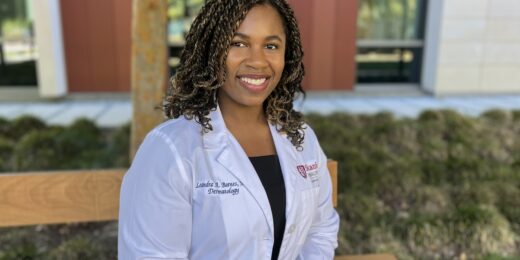Note: Certain details in this entry have been omitted or changed to protect the identity of those involved.
Atul Gawande, MD, the famed surgeon-writer (or maybe he's more of a writer-surgeon these days), gave the commencement address at the University of California, Los Angeles' medical school this year. His message was one that has been often repeated during white coat ceremonies to mark the start of medical school but worth repeating again during graduation -- that all patients have a kernel of humanity and deserve to be treated equally. The problem is this kernel of humanity is very often hidden deep inside some individuals and can be sometimes entirely out of reach. We just have to trust that it's there.
During one of my trauma rotations, we took on two patients involved in the same motor vehicle collision. One of the drivers, high on methamphetamine, T-boned another car at an intersection. I wish I could tell you that this story has a happy ending but death can be cruel in its indiscrimination. The driver on meth escaped with a mere bone fracture. And just a floor above us in the ICU, the other victim, a father and husband, I believe, was brain dead on life support. He was taken off a few days later.
Over the next few weeks, we treated the survivor like any other patient. We repaired his broken bone and we rounded on him every morning. We changed his dressings for him. We tried to keep his pain to a minimum without indulging his past drug use. Physical therapists dropped by to help him regain function. Eventually, he recovered and was handed over to the authorities.
I wish I could also tell you that this tragedy changed him, that he showed profound remorse for what he did. But he didn't change. In fact, the patient was rude to the nurses. He was irascible from his withdrawal, spiraling into anger fits and would try to manipulate the residents for more pain pills. He was loud and inconsiderate to other patients. This episode occurred more than a year ago, but my words are still tinged with anger as I recall it.
Of all the four pillars of medical ethics -- justice, beneficence, autonomy, and non-malfeasance -- perhaps the most difficult one to uphold is justice, the obligation to treat all patients equally and fairly. It's not a test of our clinical skills but one that pushes our resolve for compassion, sometimes to its breaking point. Whoever walks through those hospital doors is a patient and in our eyes, that is all they are. We are obligated to treat them with no other distinction.
Ugly or beautiful, fat or skinny, atheist or God-fearing, Republican or Democrat, young or old, even law-abiding or criminal -- these labels and life histories assigned to our patients are irrelevant to how we care for them. As physicians, we may possess the awesome power to heal but that is as far as our powers extend -- judgment is not within our jurisdiction.
When I first began my rotations, I had a patient who was a smoker and came in with shortness of breath from his emphysema. Smoking, especially here in the heart of Silicon Valley, the land of açai bowls, organic kale smoothies, and daily yoga, is seen as a cardinal sin. So when he told me that he had a decades-long history of smoking with several similar episodes of shortness of breath, he heard the slight disgust in my voice and saw the furrow in my eyebrows as my face made an expression of condescension. There was no coming back from that point. I lost his trust as my judgment trampled over his dignity. We were adversaries now, so why would he accept my advice to quit smoking?
There will always be a long line of doctors waiting to treat Mother Theresa. But the ultimate test for us as doctors, and as human beings, is how we respond to those who go against our core values, morals, and perceptions of the world -- the ones who no one else wants to take care of. Because they are sometimes the ones who are in need the most.
For my future patients, judgment will never be a part of the prescription.
Stanford Medicine Unplugged is a forum for students to chronicle their experiences in medical school. The student-penned entries appear on Scope once a week during the academic year; the entire blog series can be found in the Stanford Medicine Unplugged category.
Steven Zhang is a fourth-year medical student at Stanford and a Howard Hughes medical research fellow at the University of California in San Francisco. When he's not in the hospital, you can find him on a run around campus or exploring a new hiking trail.
Photo by StanfordMedicineStaff



